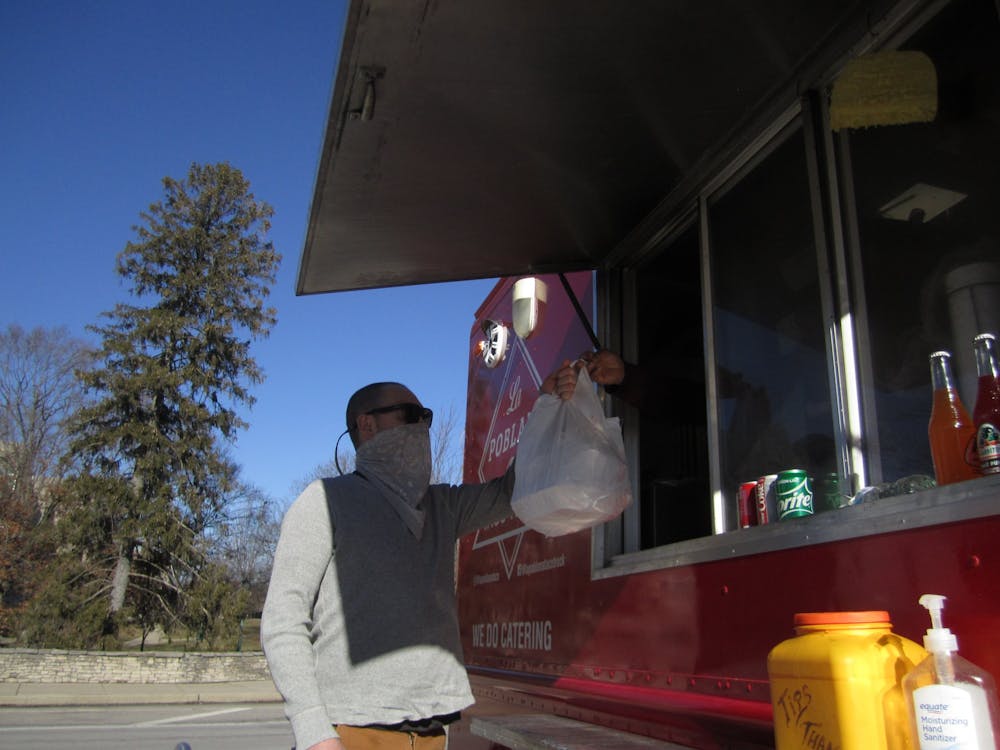After seeing many other local restaurants shut down in March, Döner Kebab owner Hamid Naderi worried about the effects of the pandemic on his food truck.
“So many businesses closed down,” Naderi said. “But still, people look for food. I will be here for them.”
While traditional style restaurants can make accommodations for social distancing, food trucks have struggled to adjust after event cancellations and an overall decrease in customer visits. Food Truck Fridays and other city festivities brought in a significant portion of revenue for Bloomington food trucks, and these events have been paused since the start of the pandemic.
Maria Del Pilar Gonzalez, owner of Pili’s Party Taco food truck, has sold food in Bloomington since 2017. She said food trucks may suffer more than traditional restaurants during the pandemic, mainly due to a lack of events to participate in.
“We are not a traditional restaurant, so we don’t get a lot of people coming in,” Gonzalez said.
Late nights when other restaurants are closed and bar goers are looking for places to eat are normally a big help to food trucks, Gonzalez said. However, even these are now scarce due to the reduction of crowds at bars.
Gonzalez tracked a 35% loss in sales since 2019. She said this decrease in business was not as bad as she expected. She opened a store last January, which serves as an extension of the Pili’s Party Taco food truck and has helped her build her customer base.
She said food trucks were not given accommodations like other sit-down restaurants, such as when the city closed Kirkwood Avenue to allow for social distancing outside.
The Chocolate Moose created and organized Food Truck Fridays six years ago. Chocolate Moose Director of Operations Jordan Davis said it was Chocolate Moose’s decision to cancel Food Truck Fridays, not the city’s. He said the city has not been directly involved with the event.
Food Truck Fridays usually run from April to October, but the event was canceled entirely last year due to the pandemic, Davis said.
The Chocolate Moose plans for Food Truck Fridays to be at Switchyard Park this year since it is more suitable for social distancing, Davis said. While the event is scheduled to start in April, Davis said organizers will monitor COVID-19 cases and decide whether to move forward with the event with public safety in mind.
Related: [Read our coronavirus coverage here]
“For this year we're obviously keeping a close eye on things,” Davis said. “We’re kind of just playing the wait and see game.”
La Poblana Taco Truck owner Angel Magno said he understood the city’s approach to accommodations with restaurants, such as the Kirkwood closure, and food trucks during the pandemic.
“Food trucks make a sort of call to the people to gather,” Magno said. “That’s why I think our options have been limited.”
Magno said the winter months are also normally financially harder on food trucks due to the drop in temperature and decrease in students around Bloomington.
Naderi said students are vital for food trucks to be successful, as they are a large portion of the customer base, and older residents often don't provide enough business.
“The food truck business is on the students,” Naderi said. “As long as the college is closed, we don’t have anything.”
Related: [Bloomington’s Caveat Emptor Used Books struggles to make it to fiftieth anniversary]
Owners remain hopeful that they can continue to adapt to pandemic challenges.
“We had to find a way,” Gonzalez said. “That’s the advantage we have as food trucks, we can move and find the people. We don’t have another choice.”




